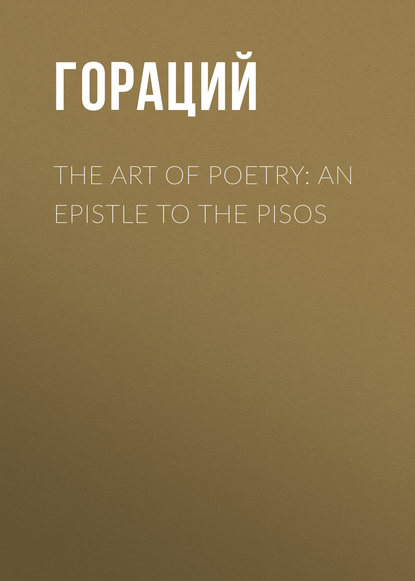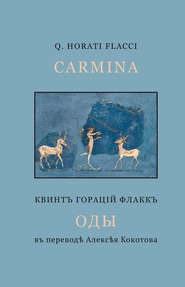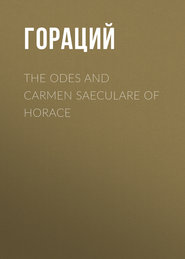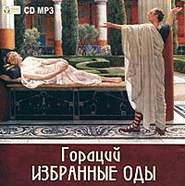По всем вопросам обращайтесь на: info@litportal.ru
(©) 2003-2024.
✖
The Art of Poetry: an Epistle to the Pisos
Настройки чтения
Размер шрифта
Высота строк
Поля
Peleus and Telephus, poor, banish'd! each
Drop their big six-foot words, and sounding speech;
Or else, what bosom in their grief takes part,
Which cracks the ear, but cannot touch the heart?
'Tis not enough that Plays are polish'd, chaste,
Or trickt in all the harlotry of taste,
They must have passion too; beyond controul
Transporting where they please the hearer's soul.
With those that smile, our face in smiles appears;
With those that weep, our cheeks are bath'd in tears:
To make me grieve, be first your anguish shown,
And I shall feel your sorrows like my own.
Peleus, and Telephus! unless your stile
Suit with your circumstance, I'll sleep, or smile.
Features of sorrow mournful words require;
Anger in menace speaks, and words of fire:
Ludentem, lasciva; severum, seria dictu.
Format enim Natura prius nos intus ad omnem
Fortunarum habitum; juvat, aut impellit ad iram,
Aut ad humum moerore gravi deducit, et angit:
Post effert animi motus interprete linguâ.
Si dicentis erunt fortunis absona dicta,
Romani tollent equitesque patresque chachinnum.
Intererit multum, Divusne loquatur, an heros;
Maturusne senex, an adhuc florente juventâ
Fervidus; an matrona potens, an sedula nutrix;
Mercatorne vagus, cultorne virentis agelli;
Colchus, an Assyrius; Thebis nutritus, an Argis.
The playful prattle in a frolick vein,
And the severe affect a serious strain:
For Nature first, to every varying wind
Of changeful fortune, shapes the pliant mind;
Sooths it with pleasure, or to rage provokes,
Or brings it to the ground by sorrow's heavy strokes;
Then of the joys that charm'd, or woes that wrung,
Forces expression from the faithful tongue:
But if the actor's words belie his state,
And speak a language foreign to his fate,
Romans shall crack their sides, and all the town
Join, horse and foot, to laugh th' impostor down.
Much boots the speaker's character to mark:
God, heroe; grave old man, or hot young spark;
Matron, or busy nurse; who's us'd to roam
Trading abroad, or ploughs his field at home:
If Colchian, or Assyrian, fill the scene,
Theban, or Argian, note the shades between!
Aut famam sequere, aut sibi convenientia finge,
Scriptor. Honoratum si forte reponis Achillem,
Impiger, iracundus, inexorabilis, acer,
Jura neget sibi nata, nihil non arroget armis.
Sit Medea ferox invictaque, flebilis Ino,
Perfidus Ixion, Io vaga, tristis Orestes.
Si quid inexpertum scenae committis, et audes
Personam formare novam; servetur ad imum
Qualis ab incepto processerit, et sibi constet.
Difficile est propriè communia dicere: tuque
Rectius Iliacum carmen deducis in actus,
Quàm si proferres ignota indictaque primus.
Publica materies privati juris erit, si
Non circa vilem patulumque moraberis orbem;
Follow the Voice of Fame; or if you feign,
The fabled plan consistently sustain!
If great Achilles you bring back to view,
Shew him of active spirit, wrathful too;
Eager, impetuous, brave, and high of soul,
Always for arms, and brooking no controul:
Fierce let Medea seem, in horrors clad;
Perfidious be Ixion, Ino sad;
Io a wand'rer, and Orestes mad!
Should you, advent'ring novelty, engage
Some bold Original to walk the Stage,
Preserve it well; continu'd as begun;
True to itself in ev'ry scene, and one!
Yet hard the task to touch on untried facts:
Safer the Iliad to reduce to acts,
Than be the first new regions to explore,
And dwell on themes unknown, untold before.
Quit but the vulgar, broad, and beaten round,
The publick field becomes your private ground:
Nec verbum verbo curabis reddere, fidus
Interpres; nec desilies imitator in arctum,
Unde pedem proferre pudor vetet aut operis lex.
Nec sic incipies, ut scriptor cyclicus olim:
fortunam priami cantabo, et nobile bellum.
Quid dignum tanto feret hic promissor hiatu?
Parturiunt montes: nascetur ridiculus mus.
Quanto rectius hic, qui nil molitur inepte!
dic mihi, musa, virum, captae post moenia trojae,
qui mores hominum multorum vidit et urbes.
Non fumum ex fulgore, sed ex fumo dare lucem
Cogitat, ut speciosa dehinc miracula promat,
Drop their big six-foot words, and sounding speech;
Or else, what bosom in their grief takes part,
Which cracks the ear, but cannot touch the heart?
'Tis not enough that Plays are polish'd, chaste,
Or trickt in all the harlotry of taste,
They must have passion too; beyond controul
Transporting where they please the hearer's soul.
With those that smile, our face in smiles appears;
With those that weep, our cheeks are bath'd in tears:
To make me grieve, be first your anguish shown,
And I shall feel your sorrows like my own.
Peleus, and Telephus! unless your stile
Suit with your circumstance, I'll sleep, or smile.
Features of sorrow mournful words require;
Anger in menace speaks, and words of fire:
Ludentem, lasciva; severum, seria dictu.
Format enim Natura prius nos intus ad omnem
Fortunarum habitum; juvat, aut impellit ad iram,
Aut ad humum moerore gravi deducit, et angit:
Post effert animi motus interprete linguâ.
Si dicentis erunt fortunis absona dicta,
Romani tollent equitesque patresque chachinnum.
Intererit multum, Divusne loquatur, an heros;
Maturusne senex, an adhuc florente juventâ
Fervidus; an matrona potens, an sedula nutrix;
Mercatorne vagus, cultorne virentis agelli;
Colchus, an Assyrius; Thebis nutritus, an Argis.
The playful prattle in a frolick vein,
And the severe affect a serious strain:
For Nature first, to every varying wind
Of changeful fortune, shapes the pliant mind;
Sooths it with pleasure, or to rage provokes,
Or brings it to the ground by sorrow's heavy strokes;
Then of the joys that charm'd, or woes that wrung,
Forces expression from the faithful tongue:
But if the actor's words belie his state,
And speak a language foreign to his fate,
Romans shall crack their sides, and all the town
Join, horse and foot, to laugh th' impostor down.
Much boots the speaker's character to mark:
God, heroe; grave old man, or hot young spark;
Matron, or busy nurse; who's us'd to roam
Trading abroad, or ploughs his field at home:
If Colchian, or Assyrian, fill the scene,
Theban, or Argian, note the shades between!
Aut famam sequere, aut sibi convenientia finge,
Scriptor. Honoratum si forte reponis Achillem,
Impiger, iracundus, inexorabilis, acer,
Jura neget sibi nata, nihil non arroget armis.
Sit Medea ferox invictaque, flebilis Ino,
Perfidus Ixion, Io vaga, tristis Orestes.
Si quid inexpertum scenae committis, et audes
Personam formare novam; servetur ad imum
Qualis ab incepto processerit, et sibi constet.
Difficile est propriè communia dicere: tuque
Rectius Iliacum carmen deducis in actus,
Quàm si proferres ignota indictaque primus.
Publica materies privati juris erit, si
Non circa vilem patulumque moraberis orbem;
Follow the Voice of Fame; or if you feign,
The fabled plan consistently sustain!
If great Achilles you bring back to view,
Shew him of active spirit, wrathful too;
Eager, impetuous, brave, and high of soul,
Always for arms, and brooking no controul:
Fierce let Medea seem, in horrors clad;
Perfidious be Ixion, Ino sad;
Io a wand'rer, and Orestes mad!
Should you, advent'ring novelty, engage
Some bold Original to walk the Stage,
Preserve it well; continu'd as begun;
True to itself in ev'ry scene, and one!
Yet hard the task to touch on untried facts:
Safer the Iliad to reduce to acts,
Than be the first new regions to explore,
And dwell on themes unknown, untold before.
Quit but the vulgar, broad, and beaten round,
The publick field becomes your private ground:
Nec verbum verbo curabis reddere, fidus
Interpres; nec desilies imitator in arctum,
Unde pedem proferre pudor vetet aut operis lex.
Nec sic incipies, ut scriptor cyclicus olim:
fortunam priami cantabo, et nobile bellum.
Quid dignum tanto feret hic promissor hiatu?
Parturiunt montes: nascetur ridiculus mus.
Quanto rectius hic, qui nil molitur inepte!
dic mihi, musa, virum, captae post moenia trojae,
qui mores hominum multorum vidit et urbes.
Non fumum ex fulgore, sed ex fumo dare lucem
Cogitat, ut speciosa dehinc miracula promat,
Другие электронные книги автора Квинт Гораций Флакк
Другие аудиокниги автора Квинт Гораций Флакк
Избранные оды




 4.67
4.67












